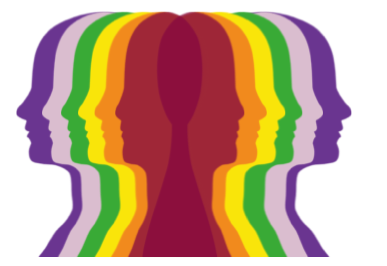What would you do if you got an ugly illness or maybe broke your arm? Would you just leave it hoping it gets better one day, in sha’Allah, or would you actually do something in order that it heals properly?
I guess most of us would visit the GP right away. So, what if you find yourself anxious suddenly, or your mood starts swinging from euphoric happiness to deep depression without any apparent reason? How would you cope after experiencing violence at home or surviving a car accident? What would you do if it seemed you just can’t reach a mutual understanding with your spouse? Would you also seek help?
Muslims, especially non-Westerners, often feed on skeptic emotions towards the science of psychology and question its usefulness. Some might even doubt whether it is halal according to Islam. Surely, certain Psychological theories or techniques are incompatible with the teachings of Islam, but dismissing psychology and the important benefits it offers all together would be a huge mistake. Psychology, in fact, has stronger connection with Islam than you might think.
Islamic Psychology
First and foremost, the science of psychology can help you understand yourself which will affect every aspect of your life. Understanding what motivates you, what makes you tick, how to overcome fears and phobias, and in general how human psyche works is not only fascinating, but it can help you to become more successful in your life as well as in your relationship with Allah, yourself and others. Psychology is about understanding the people and their emotions, and why they think or do specific things.
Unlike secular approach, the Islamic viewpoint does not differentiate between scientific knowledge and religion, but rather believes they work hand in hand. Revelation (the Quran and the legal Sunnah) is from God; therefore it’s the ultimate truth. Science, however, is the product of human reasoning which, although Islam highly values, still remains secondary to revelation as it can include mistakes. Hence, Muslims should carry out and benefit from researches and scientific experiences – as long as they are in accordance with what the Quran and the legal Sunnah of the Prophet (PBUH) teach.
From a Muslim perspective, psychology is “the study of the soul, the ensuring behavioral, emotional, and mental process, as well as the seen and unseen aspects that influence these elements.” (Hamdan) We’re here on this Earth to worship Allah (Quran 51:56), and our ultimate goal is to pass the test of this life and earn our way back to Jennah, in sha’ Allah.
The core of our life created by Allah is the soul which has 3 different stages: An-Nafs Al-Ammarah Bissu, the commanding soul that pushes us towards evil (Quran 12:53); An-Nafs Al-Lawwama, the reproachful soul that blames self for sin (Quran 75:2); and An-Nafs al-Mutma’inna, the soul in tranquility that is in strong connection with Allah (Quran 89:27) – our ultimate goal.
Throughout life, many elements influence the way we feel, think, and behave. They are our innate gens and instincts, our social environment, but also things we are aware of, yet unable to see like our Creator, the world of jinn, the presence of various angels around us; the belief in destiny, the Last Day, and the Hereafter.
Ultimately, Muslims throughout their lives strive to fulfill the purpose of their creation, to develop an Islamic personality, and to continuously purify their soul from desires and doubts in order to reach the desired stage of harmony and joy. For Muslims, that would be called a self-actualized (or rather self-differentiated) person in Maslow’s pyramid.
Causes of Mental Distress
Despite our efforts, it’s inevitable to face challenges in life. Most probably we all have experienced grief when someone close to us died; we all have felt we won’t ever find the light at the end of the tunnel; we all have blue days and anxious moments from time to time. These are completely normal feelings and part of the human life, which we are usually able to deal with. The problem begins when these feelings, thoughts, or actions become atypical, leading to personal distress or causing impairment in the person’s daily life functioning.
Unlike common stereotypes, mental illness is not a synonym for “being crazy or mentally disabled. In reality, at times, everyone suffers from some kind of mental illness to a certain extent. Anything that negatively affects one’s social, occupational, or family life outside the range of normality can be called ‘mental illness’.
From an Islamic perspective, the main causes of mental illnesses are usually the distancing from Allah, the influence of supernatural forces, and the poor development of schemas or our worldview. Allah informs us about it in the Quran:
“And whoever turns away from My remembrance – indeed, he will have a depressed life, and We will gather him on the Day of Resurrection blind.”
Weak faith and the lack of understanding of stressful life events increase the risk to become effected by jinns, whispering of Satan, or magic – as well as developing mental illness. Islamically, the purpose of emotional and/or cognitive distresses is exactly that of physical illnesses; they might be tests from Allah, or expiation for our sins; maybe they’re punishments that serve as a wake up call to remember Allah and turn back to Him.
What do Muslim Counselors/Psychologists Do?
Even though you are aware of all these facts, you might be still unable to understand your feelings or thoughts, where do they come from, and you’re clueless how to form a plan to become a happy, harmonic individual again. You might lack certain key skills and techniques, an ideal environment, or supporting individuals that would assist you to overcome your difficulties. That’s the time when you might consider reaching out to those who are experts in the field of emotions and human mind.

Islamic psychology acknowledges that humans are spiritual beings; thus, Muslim counselors or psychologists will combine their research-based knowledge about human nature with the teachings of Islam during the session(s). A counselor acts as a reminder, a peer, or a friend who applies the Prophet’s (PBUH) statement:
“The religion is good advice [naseeha].” [Bukhari & Muslim]
Counselors advise for people to fulfill their potential, facilitate behavior and experimental change from a spiritual, psychological, and intellectual perspective; they empower people to make their decisions and teach them concepts that enable them to develop; they intervene in order to shift human functioning back into the range of psychological health.
It’s important to keep in mind, though, that counselors aren’t Islamic scholars; they look at cases from a psychological and not a halal-haram perspective. In case of a marital dispute, for instance, they try to find out the root of the problem, help the couple understand and respect each other’s opinion while equipping them with communication, problem-solving, and other helpful skills. They, however, can’t solve legal issues related to extramarital affairs or child custody. Muslim counselors certainly possess Islamic knowledge to a certain extent, but, in most cases, they’re not authorized to give legal fatwas. Consequently, professional counselors work with scholars hand in hand to assist clients in the most comprehensible way.
Best Option: Spirituality Integrated Psychotherapies
Integrating religion and spirituality into psychotherapy (like the popular Cognitive-Behavioral Therapy) is actually one of the most effective ways to assist faithful Muslims as our beautiful religion is full of tools to heal as well as protect ourselves from psychological issues. Allah says in the Quran:
“O mankind, there has to come to you instruction from your Lord and healing for what is in the breasts and guidance and mercy for the believers.”(Quran 10:57)
In fact, even Western researchers found positive association between spirituality and psychological well-being. Spirituality positively affects life, marital satisfaction, ability to cope with crisis, illness and stress.
Spiritual people (those who live out their religious rituals with firm belief and sincere intention) are happier and more optimistic; they find their meaning in life easier, have a stable personality, and usually enjoy higher social support. They are less likely to suffer from depression, anxiety, suicide, criminal behavior, and addiction that are, in large part, products of the Western lifestyle and its individualistic society.
In summary, psychology is a very broad and rapidly developing field of science which offers so much insight to humans about themselves the world and its aspects which influence their thoughts, emotions, and behavior. Muslim psychologists and counselors use this empirical knowledge, combining with Allah’s revelation and teachings, to equip clients with practical tools for times of life crisis, to offer explanation to their sufferings, and to provide them with a new perspective about themselves or their situations.
Allah says in the Quran:
“To ask those who know, if you don’t know” [21:7 and 16:43]
Therefore, Muslims should never shy away from seeking such help in times of need.
First published: February 2017